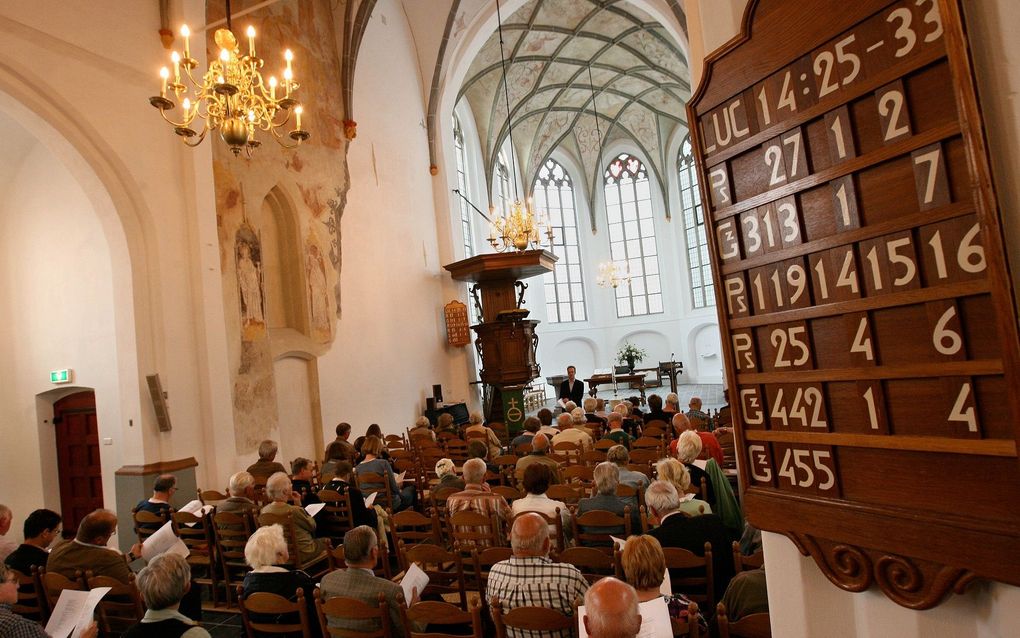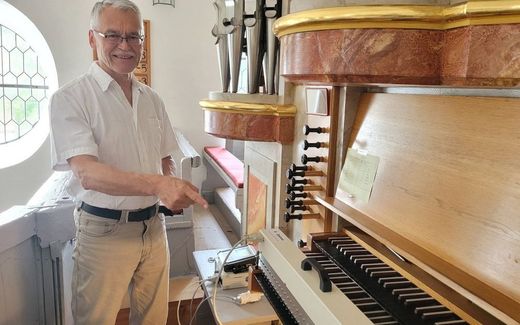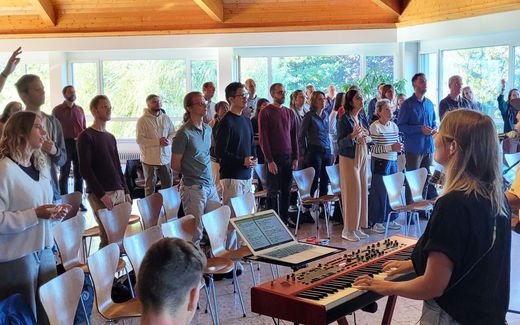Mother's column – joining the universal choir of Christians
19-08-2023
Christian Life
Neline, CNE.news

People singing hymns and psalms in a Dutch church. Photo RD, Anton Dommerholt
Christian Life
Once, I studied abroad for a year . During that time, I joined a church choir. We sang songs of all times and places, and thus, we also did a Gregorian hymn: "Victimae paschali laudes."
This song is about the Passover Lamb that was slaughtered. When I did some research on the Internet on this hymn, I found out that the Genevan melody to which Psalm 80 is sung in Dutch churches based on this song.
I hummed the tune of the Dutch Psalm once more, and surely, I suddenly recognised parts of the Gregorian Easter hymn. Promptly I appreciated how richly we are blessed in the Netherlands with our Psalter, a rich heritage of deeply-experienced text based on monumental melodies. While singing, we join the choir of Christians that has continued the song of praise all over the world for centuries. Sometimes, you need to be far from home to notice things like this.
Ancient melodies
In the Netherlands, we always sing the psalms on whole notes. However, officially the ancient melodies are meant to be sung rhythmically. That is also how they come best into their own.
But whether I like it or not, isorhythmic singing is my native musical language. Whenever I am in an inter-denominational company, and I have to sing rhythmically, I am always happy when there is a PowerPoint that shows which syllables have to be shorter by italicising them. Otherwise, I will definitely be exposed at one time or the other, together with all others in the room who have grown up in a conservative Reformed church.
Consequences
I will teach my children the rhythmic version of the psalms, I once certainly intended. But it just didn't work out. In our church and at the Sunday school, we sing iso-rhythmic. That is not something which can be changed without consequences. By doing so, the church will progress down a slippery slope into liberalism, people fear. As rhythmic singing was introduced in more liberal churches only, isothythmic singing has become one of the identification marks of orthodoxy in The Netherlands.
When by exception we sing a rhythmic psalm at home, there is always one of the children who asks whether we can't sing in the 'normal' way. And thus, we see a new generation growing up that will never be able to sing rhythmic psalms wholeheartedly.
Lost Generation, I almost wanted to write as a dramatic headline for this column. But, of course, that is nonsense. Just listen to them, singing on top of their lungs, a bit off-tune, enthusiastic, on whole notes. "The word of grace which He commands, to thousand generations stands." "Thousand generations", Sifra calls out delightedly. Let that be the language of our hearts, rhythmic or not. To thousand gerations.
About the author

Neline is married and the mother of five: Martha (9), Abel (7), Jolijn (5), Reinout (3) and Sifra (1).
Related Articles








